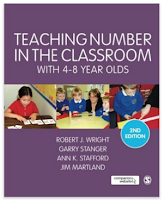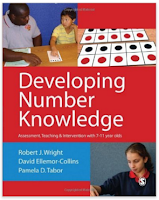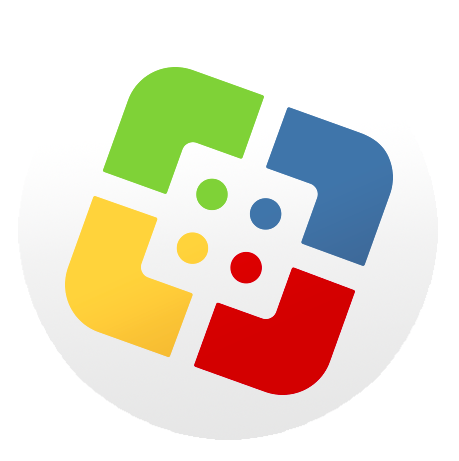In the School District of Waukesha, we have been training teachers in Add+VantageMR
since 2015. During that time, many teachers have experienced the value of learning
more about numeracy development in students and how to better facilitate their learning.
If you are interested in joining an AVMR course, participating in a book study, or taking
an AVMR TDP, please see the information below.
FYI - If you are AVMR trained, you should be able to access the AVMR BlackBoard site by
logging in with your SDW username and password. All AVMR trained teachers have been
added to the site.
AVMR Trainings:
AVMR Course 1 involves teachers learning about Add+VantageMR assessments and focusing
on a continuum of learning in relationship to the Learning Framework in Number. Teachers learn
to use a series of three assessments to develop a profile of number knowledge for children:
number words and numerals, structuring, and addition and subtraction. The profile then assists
teachers in making informed instructional decisions to advance students' knowledge and skills.
AVMR Course 1-Fall Semester
|
AVMR Course 1-Spring Semester
|
October 9th - 8:00 - 3:30
October 11th - 8:00 - 3:30
October 18th - 4:15 - 7:15
October 22nd - 4:15 - 7:15
October 29th - 4:15 - 7:15
|
April 9th - 8:00 - 3:30
April 10th - 8:00 - 3:30
April 24th - 4:15 - 7:15
April 27th - 8:00 - 3:30
|
AMVR Course 2 is a continuation of numeracy continuum of learning in regards to t
he Learning Framework in Number. You will learn about place value and multiplication/division
assessments that can be administered to your neediest students to know exactly where they are i
n their numeracy development so you can make instructional decisions that will help to move
the students along in their learning. To sign up for this course, you need to have completed
AVMR Course 1.
AVMR Course 2 - Fall Semester
|
AVMR Course 2 - Spring Semester
|
October 30th - 8:00 - 3:30
October 31st - 8:00 - 3:30
November 8th - 4:15 - 7:15
November 10th - 8:00 - 3:30 | February 20th - 8:00 - 3:30
February 21st - 8:00 - 3:30
February 28th - 4:15 - 7:15
March 6th - 4:15 - 7:15
March 13th - 4:15 - 7:15 |
Fractions Course (AVMR Course 3) is the newest AVMR Course!
Developing Fractions Knowledge by Amy Hackenberg, Anderson Norton, and Robert Wright
serves as the course text and provides a detailed and comprehensive guide to classroom and
intervention teaching of fractions. This course combines online learning with team meetings.
The teaching approach for this course relies heavily on working with students and then observing
and documenting students' mathematical activity and thinking. Instructional sequences take into
account detailed information about students' current levels of knowledge, as well as how students
reorganize their ways of working with whole numbers in order to meaningfully work with fractions.
It is highly recommended that you have completed AVMR Course 1 and 2 before signing up
for this course.
Fractions - Fall Semester
|
Fractions - Spring Semester
|
September 26th - 4:15 - 6:30
October 3rd - 4:15 - 6:30
October 10th - 4:15 - 6:30
October 16th - 8:00 - 3:30
November 1st - 4:15 - 6:30
November 7th - 4:15 - 6:30
November 14th - 8:00 - 3:30
November 28th - 4:15 - 6:30
December 12th - 4:15 - 6:30
|
January 9th - 4:15 - 6:30
January 16th - 4:15 - 6:30
January 23rd - 4:15 - 6:30
January 31st - 8:00 - 3:30 OR February 1st - 8:00 - 3:30
February 6th - 4:15 - 6:30
February 13th - 4:15 - 6:30
February 28th - 8:00 - 3:30
March 14th - 4:15 - 6:30
April 4th - 4:15 - 6:15
|
AVMR Book Studies
AVMR Book Study/Make 'n Take - Teaching Number in the Classroom with 4-8 Year Olds
This book study will read and discuss the purple book that teachers receive with course one of
Add+VantageMR. The topics covered in this book are beginning number and early counting strategies,
multi-digit addition and subtraction, and early multiplication and division. This book study will look at
the various assessment tasks and teaching activities that can be used in your classroom. Participants
will make and share resources for the various activities.
Teaching Number in the Classroom with 4-8 Year Olds - Purple Book Study
|
 October 8th- 4:15-6:15 October 8th- 4:15-6:15
October 15th- 4:15-6:15
November 5th- 4:15-6:15
November 12th- 4:15-6:15
November 19th- 4:15-6:15
November 26th- 4:15-6:1 |
AVMR Book Study/Make 'n Take - Developing Number Knowledge: Assessment,
Teaching and Intervention with 7-11 year olds .
This book study will dig into the red book that teachers receive with course two of Add+VantageMR.
The key domains of number instruction, conceptual place value, mental computation, written
computation methods, fractions, and early algebraic reasoning will be discussed. We will look at
various activities that could be incorporated into your math instruction to help meet the needs of
students. Participants will make and share resources for the various activities.
Developing Number Knowledge: Assessment, Teaching and Intervention with 7-11 year olds
- Red Book Study
|
 January 31st- 4:15-6:15
February 7th- 4:15-6:15
February 21st- 4:15-6:15
February 27th- 4:15-6:15
March 7th- 4:15-6:15
March 21st- 4:15-6:15
January 31st- 4:15-6:15
February 7th- 4:15-6:15
February 21st- 4:15-6:15
February 27th- 4:15-6:15
March 7th- 4:15-6:15
March 21st- 4:15-6:15
|
TDP Courses
The following TDP courses will be offered during this school year.
- October- AVMR Course 1 Revisited - Planning for Implementation
- 2nd, 9th, 16th, and 23rd from 4-6pm
- January- Differentiation of AVMR Games and Activities
- 8th, 15h, 22nd, and 29th from 4-6pm
- February- AVMR Course 1 Revisited - Planning for Implementation
- 5th, 12th, 19th, and 26th from 4-6pm
- March- AVMR Course 2 Revisited - Planning for Implementation
- 5th, 12th, and 19th of March, and April 2nd from 4-6pm
If you are interested in participating in any of these learning opportunities, please fill out
the Google Form and indicate your choices. Since only a limited number of spots
are available for each course, sign up early to guarantee a spot. You must attend all of
the dates/times for each particular course.





